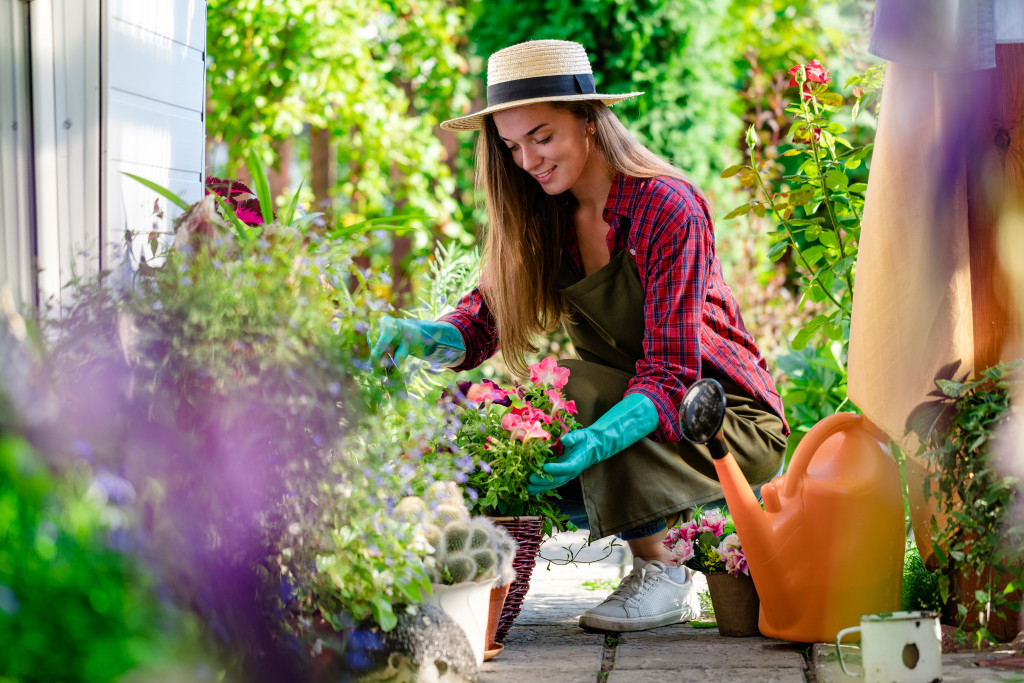- Physical health benefits of gardening include exercise, connection with nature, and access to Vitamin D.
- Gardening can reduce stress levels and the risk of chronic illnesses.
- It also helps stimulate the immune system and increase organic food consumption.
- To get started, choose the right plants, prepare the soil, select suitable containers, water plants regularly, and dispose of waste properly.
- Gardening is an excellent activity for improving physical health and staying active.
Have you ever stopped to think about the numerous benefits gardening offers? While some might think gardening is just a hobby, it has been shown to have numerous physical benefits. Whether you have a large or a small garden or grow ornamental plants or herbs and vegetables, gardening positively impacts your physical health. Here’s what you need to know about gardening in the U.K., why it’s great for your body, and how to start your garden.
Gardening in The U.K.
About 27 million in the country are estimated to participate in gardening activities. That’s more than half of the population! Gardening is one of the favorite pastimes in Britain, and it’s no doubt that it has its benefits. If you’re still in the fence regarding gardening, here’s what you need to know about the physical benefits of it.
Physical Health Benefits of Gardening
Gardening can help with your physical health in several ways. Here are some of those ways:

Exercise
Gardening requires you to carry out various physical activities like planting, digging, weeding, and watering. These activities might seem like mundane house chores, but they provide an excellent exercise opportunity. Regular gardening activities can help you improve your flexibility, strengthen your joints, and enhance your overall body fitness.
Connecting with Nature
Spending time outside surrounded by nature has numerous benefits. People who garden often report feeling more relaxed and less stressed. This natural antidote to stress means gardening can lower blood pressure and reduce the risk of heart attacks, stroke, and other chronic ailments. By reducing personal stress, gardening impacts physical health in the long term.
Vitamin D
Gardening provides a great source of Vitamin D essential for healthy bones. Vitamin D helps our bodies absorb calcium from food and sunlight. Gardening typically occurs outside, and being outdoors for just a few minutes provides enough exposure to get the necessary vitamins from sunlight.
Improved Immune System
Gardening is a great way to get in touch with soil and plants. As you work in the soil, bacteria and other microorganisms in the environment get into your body, which has been shown to help stimulate your immune system. Eating food harvested from your garden will also offer a healthy dose of microbes that can enhance your digestive system and aid in maintaining a healthy weight.
Increased Organic Food Consumption
If you start a vegetable garden, you can access a relatively cheap, fresh, and organic supply of vegetables and fruits. By eating whole foods free from preservatives, dyes, and other chemicals, your body benefits from the nutrients these freshly harvested foods offer.
How to Get Started
Now you know the benefits of gardening, here are five steps you need to take to start your garden:

Choose the Right Plants
It’s important that you choose the right plants for your garden. Here are four easy-to-grow plants:
- Tomatoes: If you want a vegetable garden, tomatoes are a great start.
- Basil: If you want aromatic herbs, basil is an excellent choice.
- Daffodils: They’ll bring color and life to your garden during springtime.
- Exotic Tropicals: Adding exotic tropical plants will brighten up any dull corner in your garden.
Prepare the Soil
Once you’ve chosen your plants, you must prepare the soil properly. This involves removing weeds, checking for rocks or debris, and adding nutrients to the soil. You can also use a seedling starter mix to help new plants take root faster and get enough nutrition as they grow in their new environment.
Choose the Right Containers
You can start a container garden if you don’t have a garden. You must choose the right pots or containers suitable for your plant type. This means selecting the right size and material for your plants to thrive in.
Water Your Plants Regularly
You must water your plants regularly; otherwise, they won’t grow properly. Ensure you check the soil moisture every few days to know when it needs watering. Also, ensure proper drainage, as overwatering can lead to root rot and other issues with the plant’s health.
Dispose of Waste Properly
It’s essential that you also dispose of your waste properly. If you need a proper container for waste, consider getting a skip hire company to help you. They can help you rent a skip and throw away the waste responsibly.
Gardening is an excellent activity for improving your physical health. Whether you have a large or small garden or growing ornamental plants or vegetables, it has numerous benefits that can help you stay healthy and active. By following these steps, you’ll be on your way to starting a beautiful garden that will boost your physical health!




